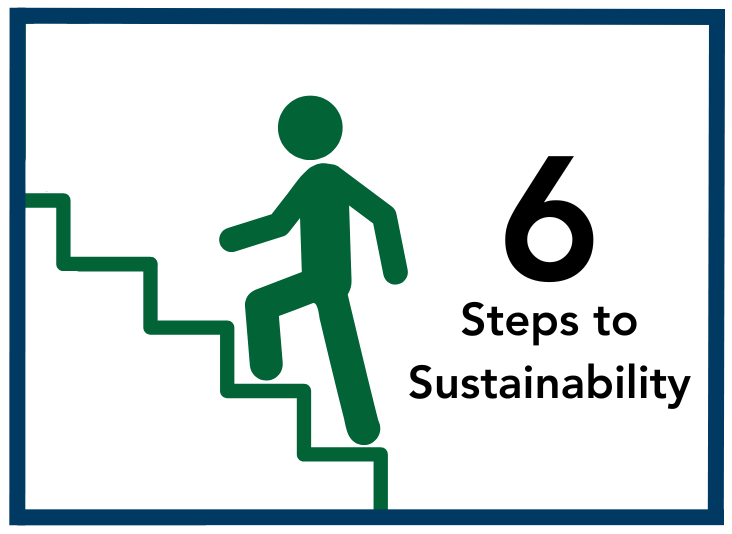What COP27—and Future Climate Talks—May Mean for Your Organization
Big changes are in the works for climate change mitigation and sustainability compliance. While many questions remain, proper preparation can help waste-generating organizations adapt and even improve environmental, health, and safety (EHS) operations and sustainability.
COP27 leadership is pushing for complete environmental remediation approaches. This may mean you, too, must factor in macro conditions for sustainability. It is possible that agreements to reduce greenhouse gas (GHG emissions) will lead to changes in transportation, materials access, or even operational protocols.
Climate Change Drives Global Response
The 27th Conference of the Parties to the United Nations Framework Convention on Climate Change (COP27) concluded recently. Members settled on a number of new climate mitigation and sustainability objectives that will likely result in a major shift for actionable sustainability worldwide. This might also mean modifications to sustainability program implementation and operation for waste generators and GHG emitters of all types.
The conference's primary goal is to spur a global response to climate change—a task it has had some successes in. Previously, the Kyoto Protocol and Paris Agreement negotiations vowed to reduce GHG emissions and limit global warming, an act that had ripple effects for organizations worldwide.
Worldwide Compliance Efforts
These agreements, and COPs in general, impact business worldwide. In the United Kingdom, the European Emissions Trading Scheme requires conforming to heavily regulated emissions allowances—and violators face fines. In Spain, the Ecological Public Procurement Plan mandates that public works operations reduce greenhouse gases, establish energy efficiency, save water, and reduce waste. As one of the largest GHG emitters in the world, the United States is likely to follow suit with similar measures—legislative bodies may potentially cite and charge noncompliant organizations.
This year, COP27 participating parties reaffirmed existing commitments, agreeing to further limit atmospheric temperature increase and boost emissions-cutting actions. They also agreed to "loss-and-damage" funding to assist countries most affected by climate change. In this blog, we analyze how this may affect your business—and how you can be prepared to meet these changes.
COP27's Impact
COP27's commitments will likely soon affect your operations. Across industries, COP27 will likely dictate planning and implementation of new sustainability programs as well as modification of current programs.
Potential changes may include:
1. GHG Emissions Limits
You may have already reduced greenhouse gas (GHG) emissions at your company. Regardless, COP27 may require you to slash them further. For businesses, this may include minimizing transportation and shipping, purchasing carbon offsets, sourcing local materials instead of transporting them from geographically distant locations, or even exploring new options for common business operations that produce GHGs. Proactively conducting an energy audit can help you identify and select the most appropriate emissions reduction techniques.
2. Carbon Footprint Reductions
Similarly, you may need to completely re-evaluate your carbon footprint and find ways to reduce it. There are many ways to reduce the carbon footprint of your business; perhaps this involves sanitizing and reusing materials in the lab or searching out new protocols that require fewer substances and generate less waste. Not all reductions need be drastic—it could be a matter of installing motion-activated lights or LED bulbs, or implementing a policy of unplugging all unused electronics gear. As with GHG emissions (discussed above) you can start addressing this program with an energy audit.
3. Deep Commitment to Sustainability: Today
Overall, there is a growing and widespread movement among countries and industries to promote sustainability. At some point, nearly all businesses and organizations will need to realistically assess their operations and goals and match them to accepted sustainability best practices. Sustainability is good business, making the organization leaner and more efficient. Ideally, you will already be steering down this path. If not, developing a culture of sustainability should begin immediately. This requires managerial commitment, as full compliance will be a moving target.
Previous COPs set high-level goals for emission reduction and organizations worldwide had to scramble to meet them, with varying degrees of success. This will remain the norm, so preparation is key. At the very least, to be prepared, a basic sustainability program plan should be considered. Being ready to execute plans can help avoid noncompliance fines, loss of market share, operations interruptions, and more.
4. Consideration of the Project's Full Scope
While developing a plan for a sustainability program, it is important to consider the whole scope of the project. COP27 agreements may affect all aspects of your business operations—regardless of what sustainability programs you already have implemented, governing bodies may be asking for more. COP27 leadership could have decided to simply continue to make progress towards reducing GHG emissions. However, they thought about the entire scope and effects of climate change and used that to progress their mitigation plans.
In your business, evaluation should be similar—look at every step of the process and how it will affect all stakeholders. You may already have a plastics recycling program in place, for example, but new legislation may require you to reduce GHG emissions. It will be crucial to analyze the full scope of a sustainability project in order to address sustainability goals head-on. Ask yourself how action or inaction regarding aspects of any sustainability project will affect key stakeholders, including clients, employees, and the earth. Question whether or not actions you take or don’t take will result in further obstacles in the future.
5. Creation of a Smart, Agile Mindset and Framework
Similarly, COP27 objectives will drive organizations to increased operational adaptability. No matter how much preparation goes into planning and executing a sustainability program, problems and challenges are inevitable. When this occurs, it can cripple innovation—or motivate it—and the answer lies in the adaptability of corporate leadership.
A too-rigid and static approach to sustainability may result organizations adopting outdated, unapproved, or even unsafe methods. Flexibility and adaptability can help businesses of all types continue making progress in their own sustainability operations. COP27 leadership demonstrated the need for adaptability to unforeseen threats and the ability to re-focus goals as needed.
This mindset can be carried over into your organization. With recycling, for example: current recycling systems only actually recycle a small amount of plastic waste. As such, maintaining recycling and sustainability goals may become more complex with added waste streams or new growth. This complexity may drive the need to seek other sustainable waste disposal methods to meet your specific needs.
Be Prepared for COP27's Effects
The outcomes of COP27—as well as future climate talks—will almost certainly affect how your business, institute of higher learning, or similar organization complies with environmental regulations. Being aware of the ways that these agreements may affect your organization is the first step to remaining compliant and successful. Not sure how to get started? Contact us today to talk about how we can help you prepare.










.png)